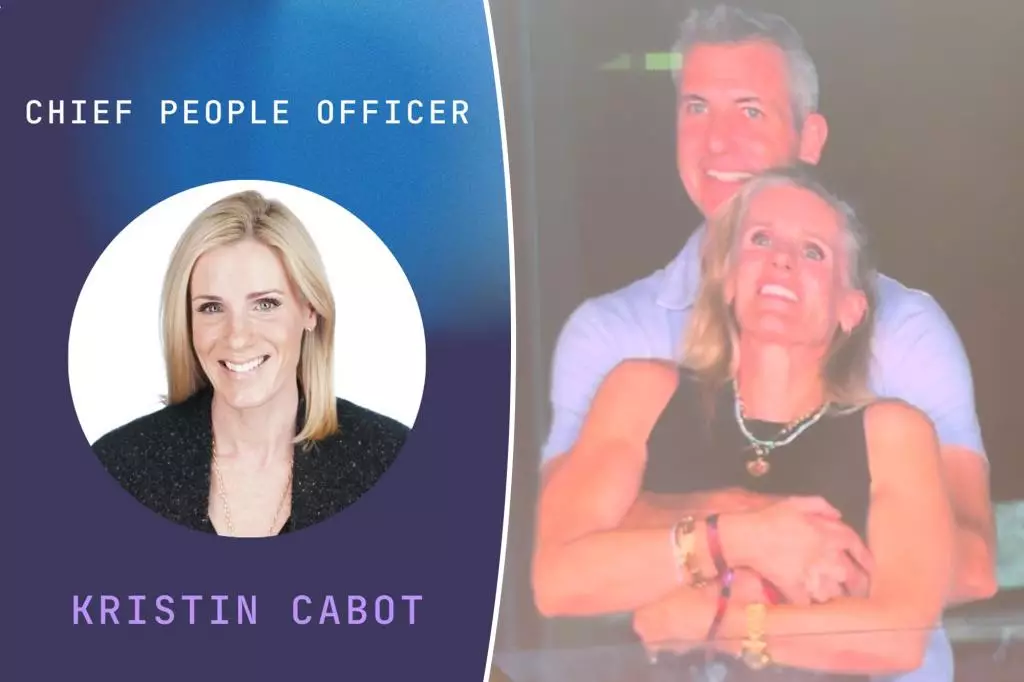In the realm of corporate leadership, appearances often serve as carefully crafted masks concealing darker truths. Kristin Cabot’s confident portrayal of herself as a master at gaining trust and building innovative organizational cultures epitomizes this phenomenon. Her self-assured language, prominently displayed on LinkedIn, suggests a leader who embodies influence, fearlessness, and transformative capability. Yet, beneath this veneer lies a disturbing disconnect—a stark contrast between public persona and private reality. The tendency for leaders to project strength does not inherently guarantee integrity or authenticity; instead, it can sometimes be a prelude to manipulative or self-serving conduct.
What is particularly revealing about cabot’s narrative is the emphasis on her ability to attract top talent and align organizational values. Such claims are typical in corporate branding, but they often belittle the underlying human complexities that motivate genuine trust. Building true confidence within a team necessitates transparency, consistency, and authentic empathy—not just strategic branding statements. When these qualities are absent or masked by superficial charm, organizations become vulnerable to scandals and internal discord, as evidenced by the recent allegations and personal misconduct revelations associated with her employer.
The Unmasking of Power and Privilege in Personal and Professional Contexts
The recent incident at the Coldplay concert, where Cabot and her boss Andy Byron appeared caught in an intimate act on camera, exemplifies how personal boundaries can blur in professional settings. Their hurried attempt to hide their display underscores an unwillingness to confront their own vulnerability or, perhaps, an awareness of the misconduct’s impropriety. Such moments are not isolated; they symbolize a deeper issue surrounding the misuse of power in corporate hierarchies.
Beyond the viral videos and public shaming, this incident exposes the unspoken dynamics of privilege and entitlement. Byron, a figure of authority within Astronomer, allegedly engaged in extramarital affairs that drew public scrutiny—and personal pain—by affecting not only his reputation but also his family’s privacy. The fact that his wife addressed the social media fallout highlights the collateral damage that high-profile scandals inflict on innocent parties. These episodes serve as cautionary tales about the seductive allure of unchecked power and the importance of maintaining ethical boundaries, especially when wielded from a position of influence.
The Dark Side of Leadership: Fear, Intimidation, and the Cost of Ambition
Historical accounts from Byron’s previous employment at Cybereason reveal a disturbing pattern of authoritarian tendencies and intimidation tactics. Former employees describing an environment where dissent was met with threats of dismissal paint a portrait of a leader who values conformity over innovation. Such managerial styles cultivate environments rife with fear, stifling creativity and engendering distrust among teams. When corporate culture is built on fear and silence, the supposed benefits of rapid growth and success are often short-lived, and the long-term damage can be profound.
Furthermore, the public praise Byron received upon hiring Cabot, emphasizing her “exceptional leadership,” underscores how often organizations manipulate narratives to conceal systemic issues. Such statements serve to reinforce a leader’s image, shielding their flaws from scrutiny. Yet, reality frequently contradicts these polished personas, revealing vulnerabilities, misconduct, and internal fractures. When leadership champions image over integrity, it risks losing its most valuable asset: trust. Once that trust erodes, organizational cohesion becomes fragile, and scandals—such as the recent revelations—are inevitable.
public perception and the personal toll of corporate scandals
The aftermath of public shaming extends beyond the individuals directly involved, affecting entire communities—including families, colleagues, and consumers. Byron’s wife, Megan Kerrigan Byron, became an unintentional witness to the fallout of her husband’s actions, illustrating how personal and professional lives are inextricably intertwined in the age of social media. Her decision to delete her Facebook profile, dropping her surname, signifies the social pressure and desire to distance herself from the controversy.
Meanwhile, the sudden eruption of scandals creates a climate of skepticism toward leadership claims. Employees and followers begin to question not only personal character but also the values underpinning organizational success. When leadership is exposed as flawed or hypocritical, it undermines the very foundations of trust, forcing companies to reckon with their own brand identities and internal cultures. Such moments demand more than damage control; they require authentic reflection, accountability, and a willingness to dismantle toxic power structures.
The intriguing aspect of these revelations is their potential to serve as catalysts for change. They remind organizations and individuals alike that true leadership cannot thrive on deception, superficial charm, or unchecked authority. Genuine influence stems from humility, transparency, and a commitment to ethical conduct. While scandals may temporarily tarnish reputations, they also offer an opportunity to rebuild with integrity—as long as the leaders are willing to confront their flaws and choose authentic accountability over superficial image maintenance.

